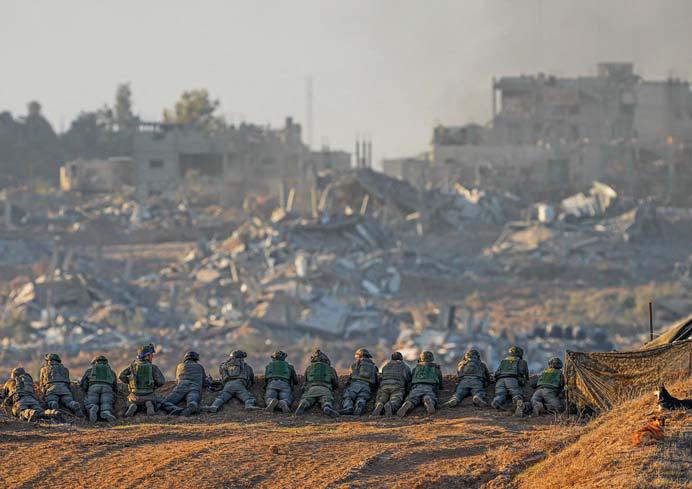
This very situation has existed in almost every Israeli war since 1948 because the country's problems are political in nature, not something military force alone can solve. This reality means that instead of Operation Swords of Iron ending upon completion of Israeli objectives, it will endas other Israeli wars have-when leading nations (often the U.S.) determine that its military has gone too far.
It's a dynamic rooted in the history of Israel. In November 1947, in the wake of the Holocaust, the U.N. passed a resolution recommending the end of British Mandate Palestine and the creation of two independent states in the region: one Arab and one Jewish. A civil war between Jewish and Palestinian forces and a chaotic abandonment of Palestine by British forces soon ensued. When Israel declared independence in May 1948, its Arab neighbors attacked. Israeli forces prevailed on almost all fronts, and roughly 750,000 Palestinians fled or were expelled. The war ended only when Israel's leaders became fearful of British military intervention.
This story is from the February 12, 2024 edition of TIME Magazine.
Start your 7-day Magzter GOLD free trial to access thousands of curated premium stories, and 9,000+ magazines and newspapers.
Already a subscriber ? Sign In
This story is from the February 12, 2024 edition of TIME Magazine.
Start your 7-day Magzter GOLD free trial to access thousands of curated premium stories, and 9,000+ magazines and newspapers.
Already a subscriber? Sign In
